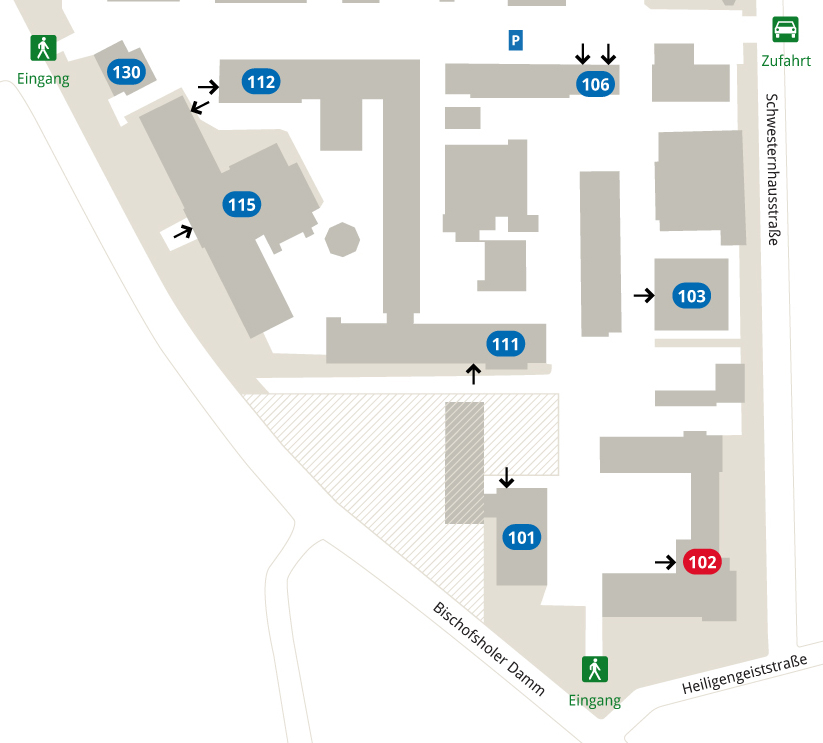
Research Units
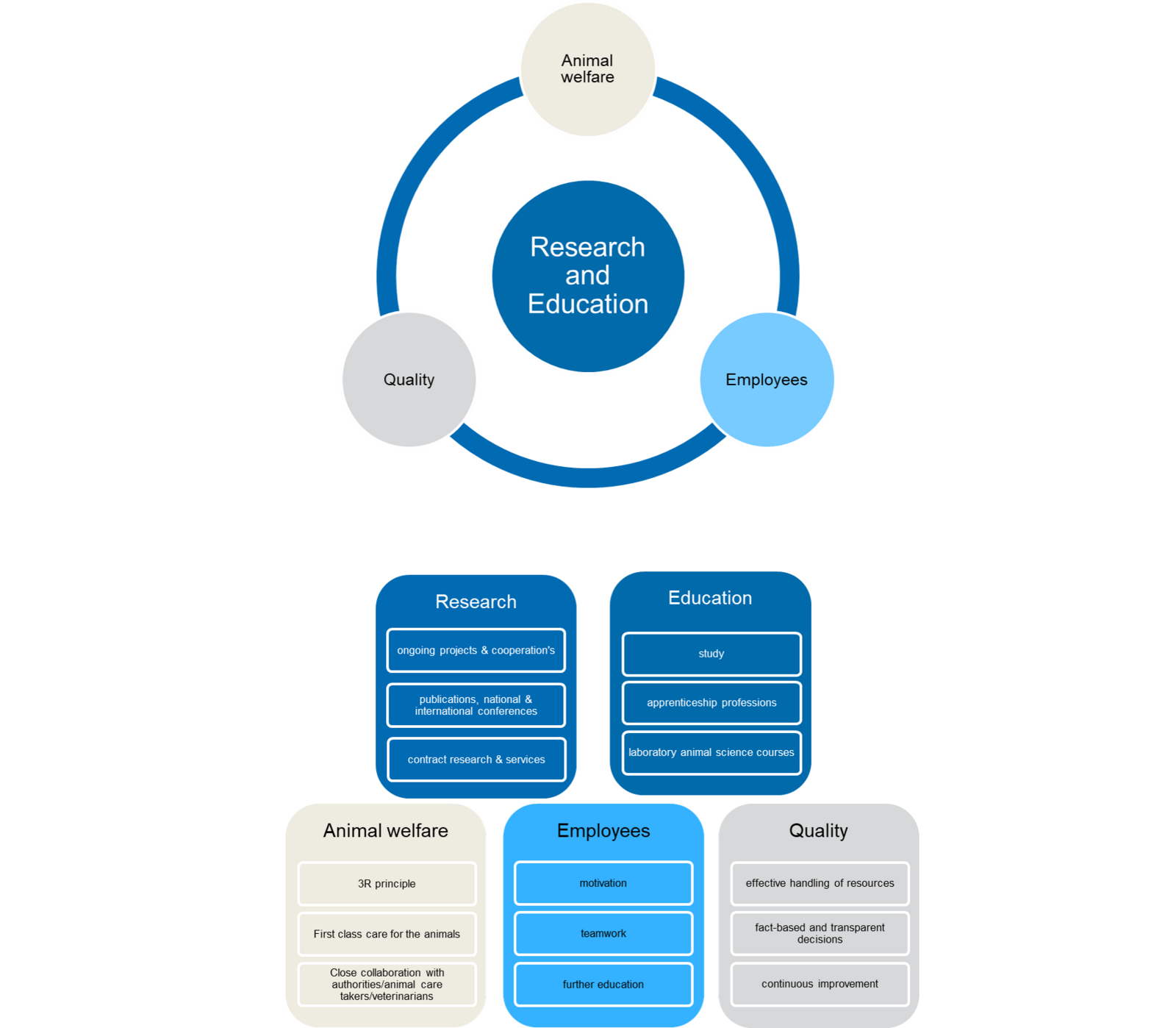
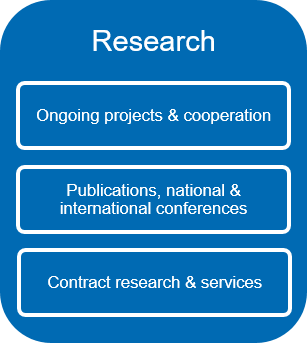
Ongoing projects & cooperation: The Institute's projects are focused on research into physiology and nutritional physiology. In this sense, our aim is to investigate the relevance of physiological and pathophysiological mechanisms not only for veterinary medicine, but also in animal models, for the environment and translational studies in the sense of the "One health" concept. Our network of interdisciplinary collaborations at national and international level allows us to broaden our expertise and discuss research topics and issues in detail. "Research“
Publications, national & internationel conferences: Publications of original papers, reviews and abstracts in peer-reviewed journals are part of our daily tasks. The members of the Institute are also involved as authors in the production of textbooks (Physiology of Domestic Animals, Neurogastroenterology). In addition to organising conferences and symposia on site, the Institute offers staff the opportunity to actively participate in national and international conferences. "Publications"
Contract research & services: The Institute for Physiology and Cell Biology is available to (veterinary) doctors, the public and industry with its expertise in the field of nutritional physiology and neurogastroenterology for specific questions and problems. We also support research companies and the research-based pharmaceutical industry. We are happy to provide our models and methods, but also our assessment for scientific questions or for testing the mode of action and effectiveness of pharmaceuticals on gastrointestinal functions.
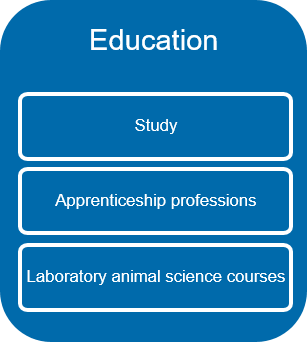
Study: The Institute for Physiology and Cell Biology is involved in the education of students of veterinary medicine and biology.
The Institute offers the possibility to participate in Dr. med. Vet, Dr. rer. Nat. or PhD studies.
LUH: https://www.uni-hannover.de/en/studium/studienangebot/info/studiengang/detail/biology/
Apprenticeship professions: In order to have motivated specialists in all areas in the future, our institute provides training in the occupations of animal caretaker (research and clinical specialisation) and precision mechanics.
https://berufenet.arbeitsagentur.de/berufenet/faces/index?path=null/kurzbeschreibung&dkz=531
https://berufenet.arbeitsagentur.de/berufenet/faces/index?path=null/kurzbeschreibung&dkz=15145
Laboratory animal science courses : In collaboration with LAS interactive https://www.las-interactive.de/index.php?id=6005 we developed an laboratory animal science course, providing necessary skills and knowledge for practical animal testing according to EU Directive 2010/63.
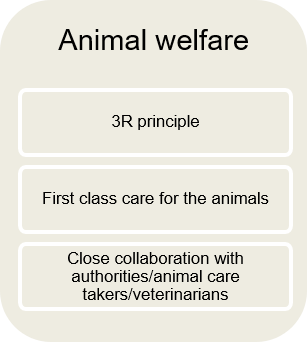
3R principle: The aim of the 3Rs principle is to completely avoid animal experiments (replacement) and to limit the number of animals (reduction) and their suffering (refinement) in experiments to the indispensable level. Together, we consistently implement this concept and see it as the basis of our actions. For the effective implementation of this concept, our animal care taker Yvonne Armbrecht was awarded the European Refinement Prize in 2019: ec.europa.eu/growth/sectors/chemicals/european-partnership-alternative-approaches-animal-testing/3rs-awards_en
First class care for the animals: For the care of the animals, we have well-trained and motivated staff constantly undergoing further training and development. All our animals receive an individual acclimatisation and training programme (medical training). For possible treatment, we have the most modern methods and intensive cooperation with the clinics corresponding to the animal species at our disposal.
Close collaboration with authorities/animal care takers/veterinarians: In order to ensure that everyone involved has access to essential information at all times, our institute has developed a communication system that includes all persons, so that neither information nor events are lost.
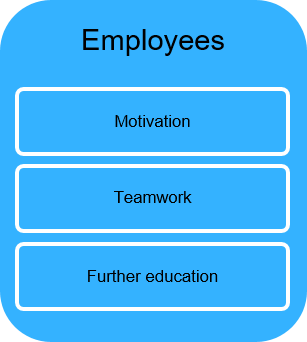
Motivation: In our team, motivation is the key to success. Through constant appreciation and room for personal development, our employees are always motivated to achieve optimal results in the areas of research and education. Flat hierarchies ensure a constantly pleasant working atmosphere with a positive influence on the intrinsic motivation of all team members.
Teamwork: Complex issues and the handling of challenging tasks often make teamwork indispensable. By combining competences from different fields and disciplines, we are able to successfully solve even the most difficult problems together. In our teams, we strive for the greatest possible diversity among the members in order to enrich the cooperation in the long term. A central point in our teamwork is communication, both between the individual team members and within the team.
Further education: Lifelong learning is constantly promoted among our staff. Every member of the Institute is given room for personal development in order to gain interest-based skills and abilities. The acquisition and deepening of professional competence serves as a continuous improvement for a constantly high qualification and ensures the quality of the work in our institute.
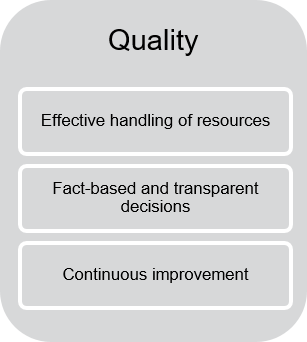
Effective handling of resources: Our institute handles all resources effectively and thus efficiently. Savings and improvement potential is thus fully exploited and contributes to cost reduction and environmental protection.
Fact-based and transparent decisions: Decisions are not only made subjectively, but are based on cause analyses, key figures, data and facts. Both the decision-making processes and the basis for decisions are transparent and comprehensible.
Continuous improvement: We strive from good to better. Therefore, all our processes are subject to continuous improvement based on constant communication with each other and mutual help.
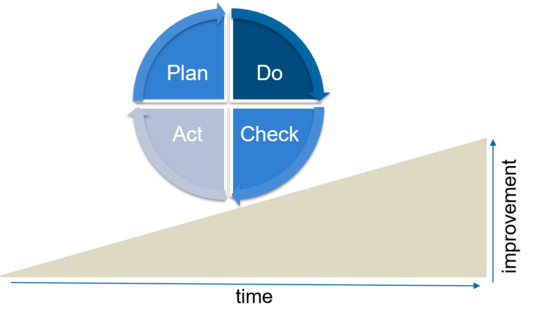
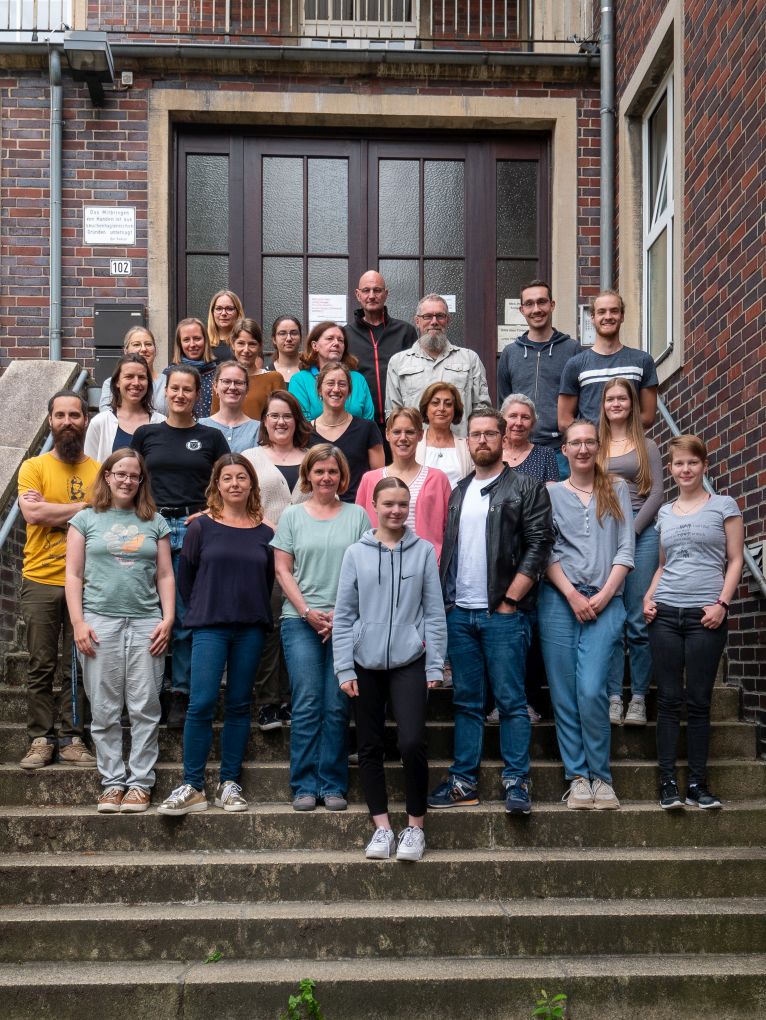

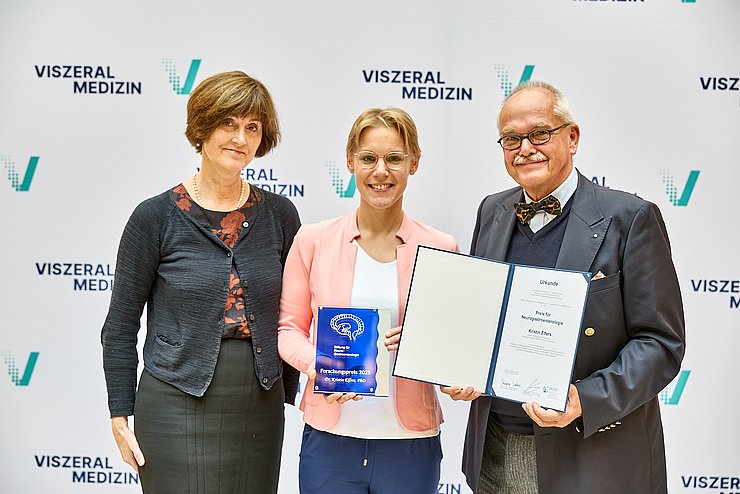
Neurogastroenterology Prize
Kristin Elfers, PhD, has been awarded the DGVS 2025 Prize for Neurogastroenterology for her outstanding scientific achievements in the field of neurogastroenterology. Through her pioneering research, she has made significant contributions to the understanding of neuronal regulation of the gastrointestinal tract. Her work bridges basic science and clinical relevance and has provided important impulses for the further advancement of the field.
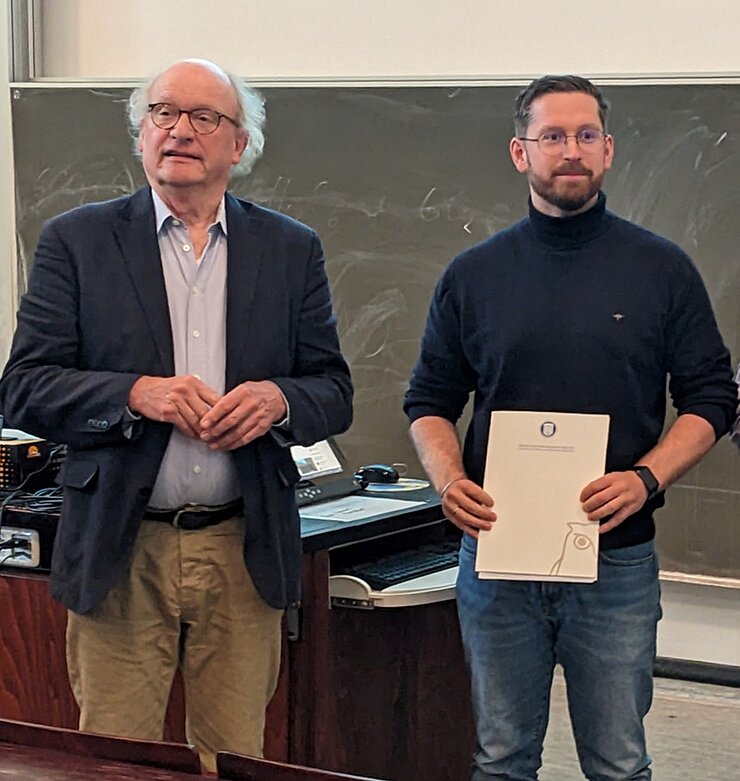
3R Young Investigator Award
Pascal Benz, PhD, was awarded the Young Investigator Award at the internal symposium of the Virtual Center for Alternative and Complementary Methods to Animal Experiments (VZET) for his presentation on "Porcine Intestinal Organoids – Physiological Features and Pathophysiological Properties.
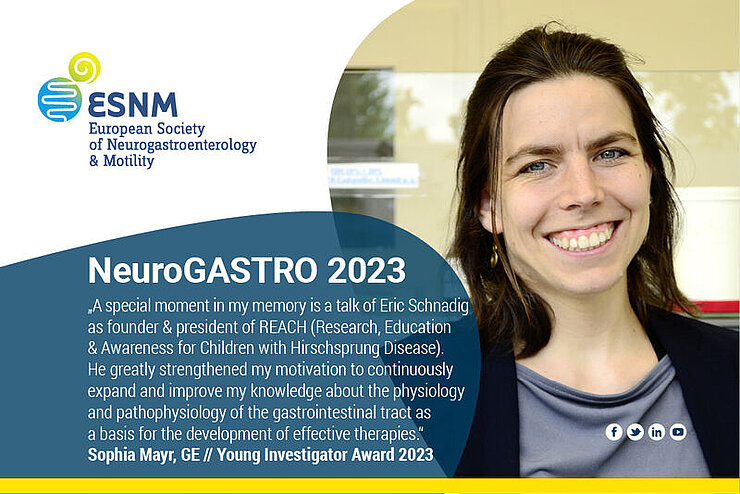
Young Investigator Award, Neurogastro 2023
Sophia Mayr, a PhD student, was honoured with the Young Investigator Award at Neurogastro 2023 in Bucharest for her abstract "Mechanosensitive enteric neurons in the guinea pig stomach". The project was planned and supervised by Prof. Dr. Gemma Mazzuoli-Weber.
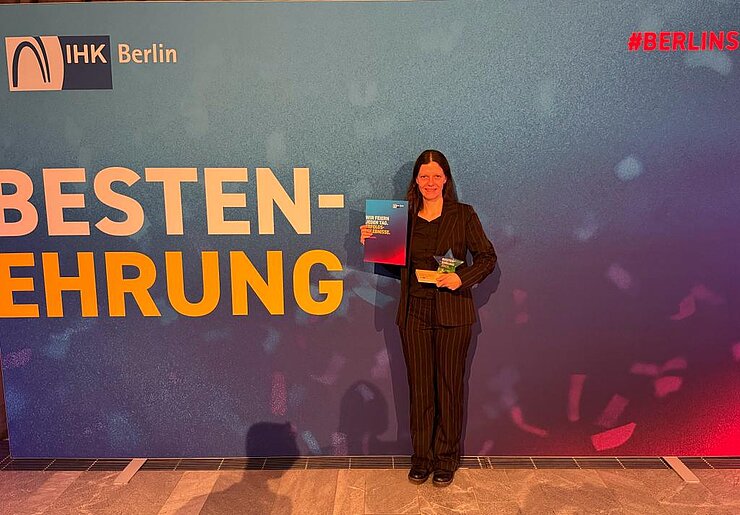
Best in Bachelor Professional of Animal Care and Management of Germany
Our animal keeper Yvonne Armbrecht dedicated herself to the IHK master course to become an animal care master (Bachelor Professional of Animal Care and Management) over a period of two years. She completed this demanding further training with outstanding achievements as the best in her field in Germany and received due recognition for her achievements at the Berlin Chamber of Commerce and Industry (IHK) awards ceremony.
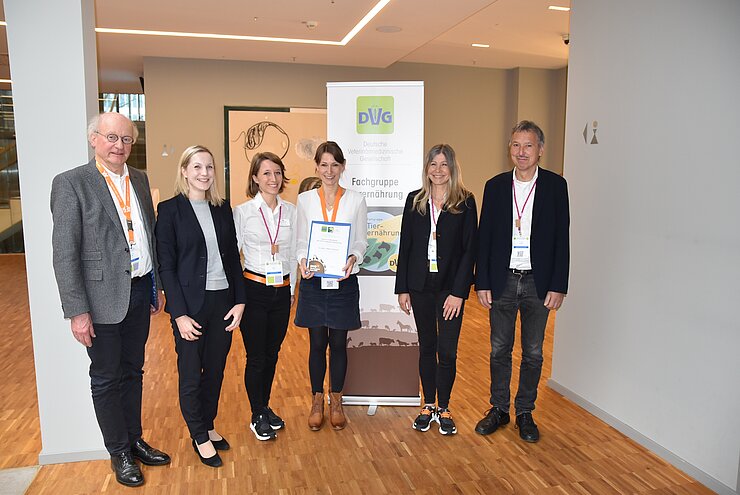
DVG Animal Nutrition Specialist Group's Young Talent Award
Dr. Sarah Weber was awarded the DVG Animal Nutrition Specialist Group's Young Talent Award for her doctoral thesis entitled “Influence of dietary nitrogen and/or phosphorus reduction on the GCN2/eIF2α/ATF4 signaling pathway in the liver and the induction of hepatic fibroblast growth factor 21 (FGF21 ) in growing goats”. The project was planned and supervised by Dr. Muscher Banse.
Gerhard-Domagk-Prize for Biosciences 2022
Pascal Hoffmann, PhD from our institute has received the Gerhard-Domagk-Prize for Biosciences for his outstanding doctoral thesis entitled "Development of an in vitro model for studying physiological properties and pathogenicity mechanisms of gut diseases caused by zoonotic pathogens".
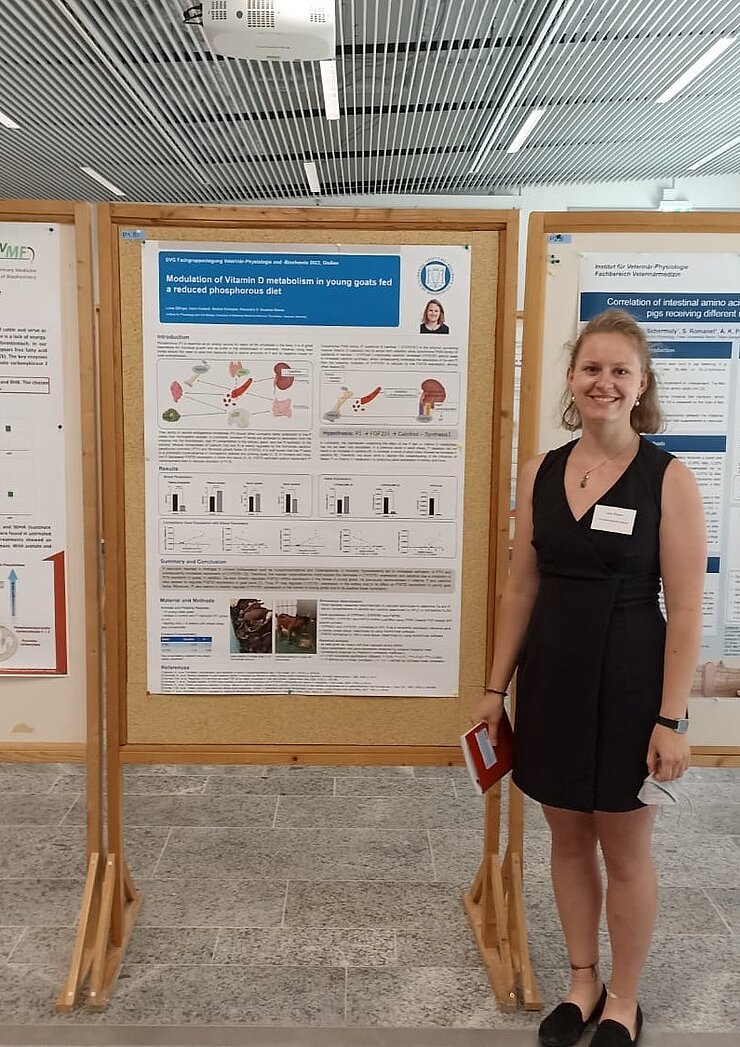
Poster prize at the DVG Physiology and Biochemistry Conference 2022
The PhD student Luisa Zillinger was awarded the poster prize at the DVG Physiology and Biochemistry Section Conference (June 2022) for her poster "Modulation of vitamin D metabolism in young goats fed a reduced phosphorous diet". The project was planned and supervised by Dr. Muscher Banse.
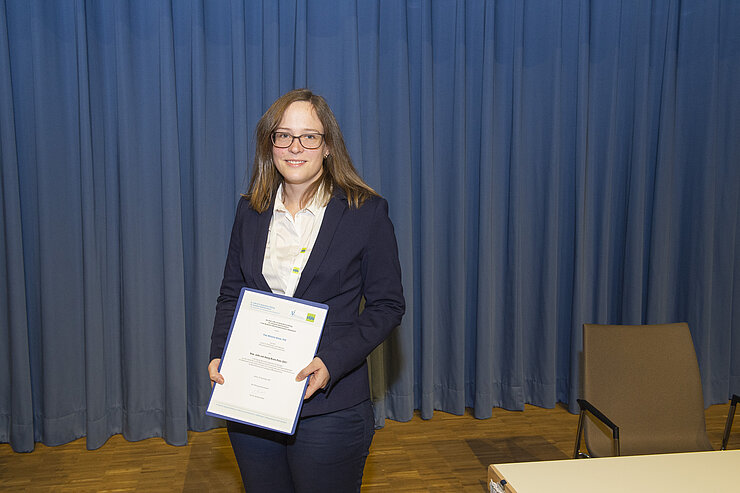
Jutta and Georg Bruns Prize 2021
Melanie Brede, PhD from our institute received the Dr Jutta and Georg Bruns Prize 2021 in recognition of her outstanding research in the field of “In-vitro modeling of the microbial forestomach metabolism, with a focus on investigations into the ruminal microbiome and metabolome and how they are influenced by pathogens Microorganisms ”on November 19th, 21st during the DVG-Vet-Congress in Berlin.
Refinement Prize 2019
Yvonne Armbrecht, our animal caretaker, won the Refinement Prize 2019 of the European Partnership for Alternative Approaches to Animal Testing (EPAA), which is leader in the replacement, reduction and refinement (3Rs) of testing on animals.
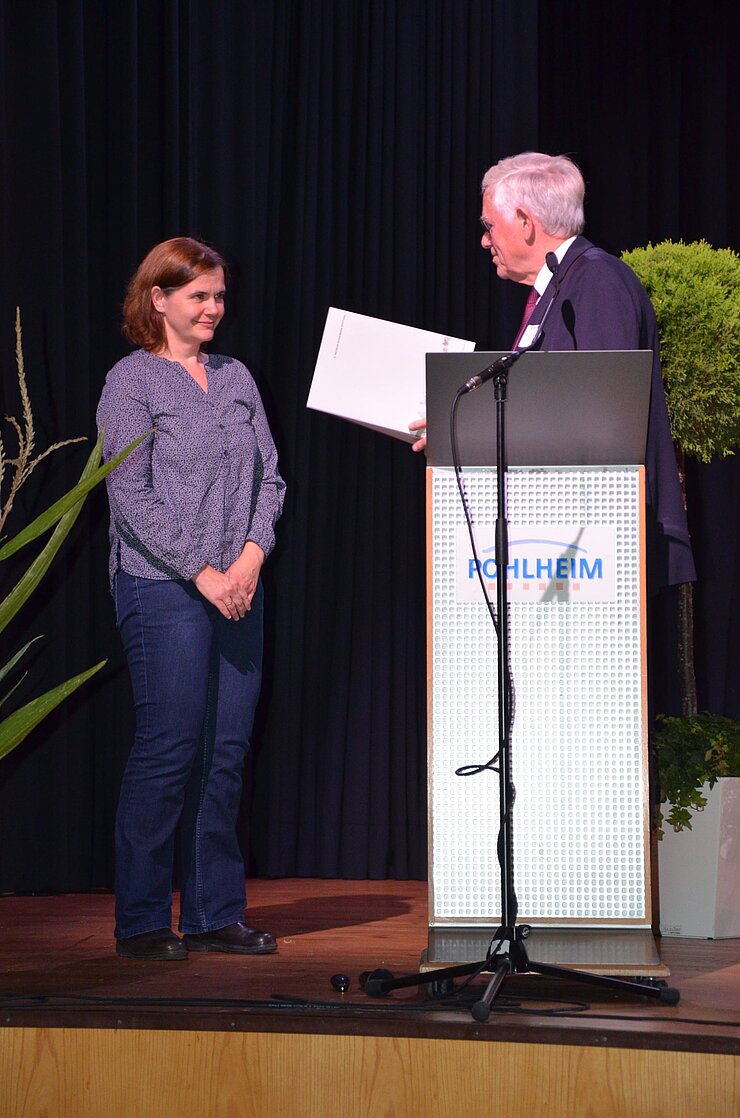
Förderpreis 2019 - Schaumann Stiftung
Every two years, the H. Wilhelm Schaumann Foundation awards prizes to young scientists for outstanding achievements. For 2017/2018, the 10,000 euro prize went to Dr. rer. nat. Alexandra Simone Muscher-Banse (Hanover) and Dr. agr. Josef Gross (Bern). The prize was awarded at the annual conference of the Society for Animal Breeding Sciences and the German Society for Breeding Science on September 11, 2019.
Alumni
-
Prof. Dr. med. vet. Gerhard Breves, Direktor a. D.
-
Prof. Dr. med. vet. Wolfgang von Engelhardt, Direktor a. D.
-
PD Dr. med. vet. habil. Mirja Wilkens
-
Apl. Prof. Dr. rer. nat. Bernd Schröder
-
Prof. Dr. Gerd Bicker
Contact
University of Veterinary Medicine Hannover, Foundation
Institute for Physiology and Cell Biology
Bischofsholer Damm 15, Gebäude 102
30173 Hannover
Tel.: +49 511 856-7272
Fax: +49 511 856-7687
Institute for Physiology and Cell Biology
Secretary, Jennifer Gronau
Montag bis Freitag: 8:00 - 14:00 Uhr
Navi-Adress
Schwesternhausstraße, 30173 Hannover

